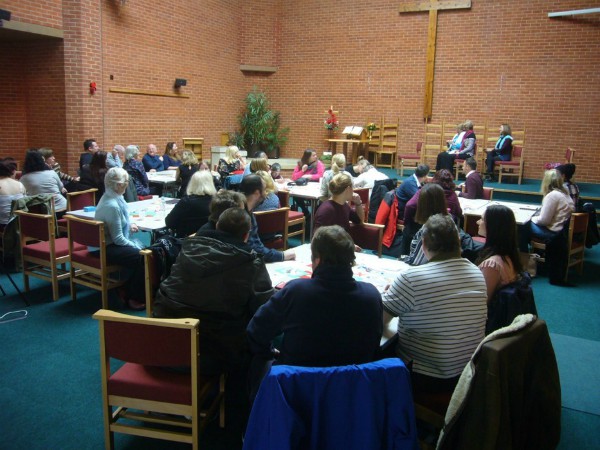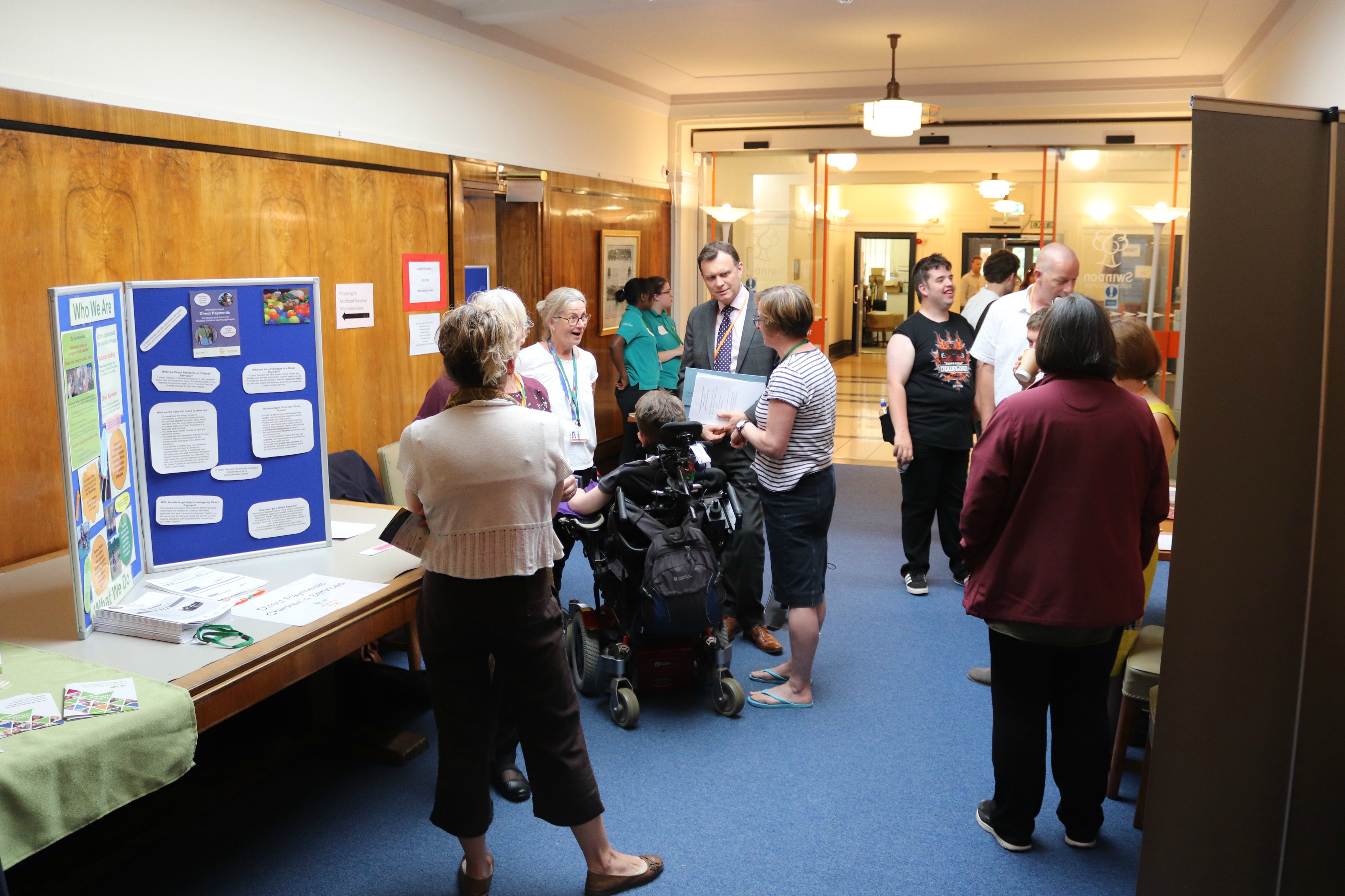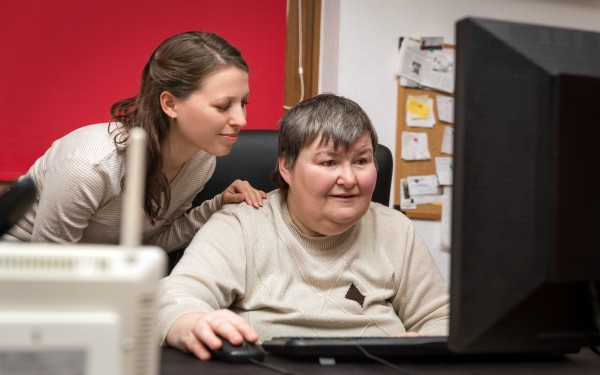Pattie is 16 years old, autistic and loves drawing cartoons. But she never considered that her hobby could become a viable career choice until she attended one of Swindon Borough Council’s ‘planning live’ events.
Planning live events are organised periodically throughout the year to best suit the individual. They are a chance for young people to work with their social worker, parents and carers to identify strengths that can be put into action in their support plans.
In Pattie’s case, when her social worker – Henrietta – would ask her about her education or career aspirations, she would struggle to come up with an answer. But because ‘planning live’ is a person-centred approach to information gathering that is driven by the service user, it allowed Pattie to explore her strengths. Henrietta, who works in the transitions team, says: “In turn, this has helped to change her outlook and had a positive impact on her self-esteem.”

The Learning Disability (LD) Partnership Board Forum shares information and opinion from people with a LD, their carers’ and professionals’ views. Image credit Swindon Borough Council.
Teamwork
The transitions team may start working with young people from the age of 14 but take lead responsibility for supporting them from 18 to 25 as they move from childhood into adulthood. The team is staffed with qualified social workers, assistant care managers and link workers.
The link workers play a key role in working with young people as they start preparing for adulthood. Swindon’s transitions team works alongside the learning disability team, which supports adults who may need some additional support in areas of their everyday life, such as accommodation, support to prepare meals independently, to manage a budget, and to be ready for employment.
Although the transitions and learning disability teams are separate, they both have a common goal to support adults with additional needs to lead better lives. Link workers are a key component in this because they work in both teams, managing some of the tasks that do not require a social work qualification to deliver. These include providing guidance and resources that can help young people further their education and employment opportunities.
One of the key positives is the stability of the team, people really support each other and draw on one another’s skills and experiences.
Helping hand
Having access to link workers and using the planning live tool have made a transformative difference to the quality of support which social workers in both teams can provide.
“Without the planning live approach, it would have taken me months to gather this much information from working with a young person and building their trust and confidence,” says Henrietta.
Madeline, who works in the learning disability team, said: “It is actually the backbone to the support plans we develop and feeds into everything that we do in adults’ services.”
They are not alone in this thinking. Even the young people’s parents and carers have been impressed at the difference the tool has had.
“We’ve seen massive successes in terms of hearing from some young people – sometimes for the first time – about what they are interested in and what is important to them,” says Hilary, assistant team manager in the transitions team. “And it gives some really powerful pictures and words from that young person that we can then use in our work.”

The ‘Welcome Corridor’ was taken at one of the council’s ‘Preparing for Adulthood’ – transitions team – roadshows. Image credit Swindon Borough Council.
Kay Reeve, head of learning disability and transitions in Swindon’s adult care, says: “Because parents, carers and the young person are invited to discuss topics such as their aspirations, what they like to do in their leisure time and where they would like to live, the outcomes are tailored and detailed.”
“Staff create a planning live booklet which encapsulates the work done by the young person at the event that is mainly pictorial to ensure it is easy for the service users to refer to. This booklet is given to a range of professionals who work with the individual to ensure they capture what is important to that young person.”
Talking about the introduction of the link worker role, Kay says “By working with young people and their family/carers before they become adults, the link workers are able to take away some of the stress and anxiety that young people and family/carers often have that is linked to becoming an adult. Having the link workers in the team has been a massive support to us.”
Trendsetter
Swindon claims to be the only local authority in the South West region to take this approach. Planning live was first introduced as a trial four years ago and its success is such that it is starting to be used in the leaving care team, and other children’s social work teams.
“We have seen the positives from using this approach in the way it supports young people when they are transitioning to a new stage in their lives that can be sometimes stressful,” says Kay. “We have one school that is now offering planning live to new students that are either coming to the school or those that are thinking about a key stage in their school lives, such as sixth form because they are seeing its positive impact.” Other schools in the area are also trialling the approach.
Caring culture
Aside from the benefits the planning live approach offers, having link workers support the team has been an asset too.
Faith, who works in the learning disability team, says: “They help to free up time for social workers by doing smaller tasks, such as supporting a service user to get on the housing register, which would take time and their need could escalate if it is not done.”
Link workers have been present in the transitions team for about four years and in the learning disability team for almost a year. It gives us the opportunity to complete court paperwork and complete our assessments,” she says.
I love working in the team because the work is varied and you are exposed to multiple challenges
Professional development
Having more time to focus on more complex cases and tackle their caseloads has a knock-on effect on social workers’ ability to further their professional development.
“It is actually one of the reasons why I have not left after five-and-a-half years with the team,” says Faith. “I feel very lucky that each year, I have had the opportunity to learn and develop and I don’t think I have yet reached the point of stopping. Every time, I have expressed a wish to learn something new, my managers have been open to me finding that opportunity.”
Faith has since completed a university module to train to become a best interests assessor under the Deprivation of Liberty Safeguards; she has worked with student social workers on their final-year placements and is now looking to increase her training in autism.
Her colleagues Henrietta and Madeline have had similar career development opportunities and welcome the support that the team managers willingly offer.
“I love working in the team because the work is varied and you are exposed to multiple challenges,” says Madeline. “I work within a supportive and stable team that is open and encourages us to ask for help and further our training.”
Henrietta adds: “I really enjoy my work. Having team members that are supportive and friendly is key to the work I do, the managers are always there when you need them and the work is really rewarding.”
Interested in job opportunities at Swindon Borough Council?
Read more about working life at Swindon Borough:
- Proving the power of multi-agency teamwork in adult safeguarding
- How a council is helping staff work creatively by giving them freedom from bureaucracy




 Facebook
Facebook X
X LinkedIn
LinkedIn Instagram
Instagram